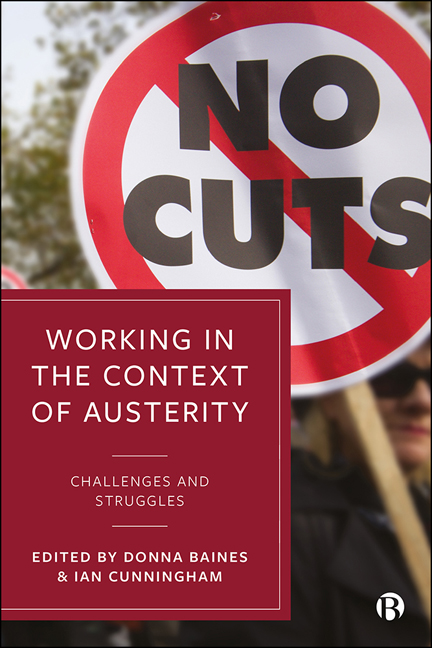2 - The Age of Increased Precarious Employment: Origins and Implications
Published online by Cambridge University Press: 18 March 2021
Summary
Introduction
We are only beginning to appreciate the full societal impact of the shift to monetarism and the ideas of the Chicago school of economics. In line with monetarist ideas, Paul Volker, the US federal reserve chairman, moved to tighten monetary supply and push up interest rates to stamp out inflation in 1979 (often referred to as the Volker Shock). This set in motion changes that spelled the end of the era of the Standard Employment Relationship (SER) in both the US and Canada (Cooper, 2017) and the rise of neoliberal austerity policies. The social compromise that allowed workers to bargain collectively and to rely on the state to fill at least some of the gaps in the social wage would gradually unravel. In the intervening four decades a new set of rules and norms have emerged, regulating the relationship between employers and employees. This chapter explores why employment rules and norms took the form they did, the prevalence of precarious employment in the labour market today and the social implications of what this chapter labels as the era of Increased Precarious Employment.
The employment norms associated with the era of Increased Precarious Employment represent one component of a broader shift to a neoliberal form of social organization. Neoliberalism is defined here as a form of social organization where individuals are free to contract, where outcomes are disciplined by the market (Harvey, 2005) and where the role of the family in providing for its members is emphasized over the role of state welfare (Cooper, 2017). Neoliberalism has redefined ‘common sense’ around the role of the state and the rights of individuals. In the process, it has remade institutions such as the employment relationship, and many of the values held by individuals (Brown, 2015; Kotsko, 2018). This chapter will argue that the increased prevalence of less secure employment has as much to do with the ideological shifts embedded in the neoliberal and austerity discourse as it does with rational responses to economic forces.
For many workers, particularly white men who were the greatest beneficiaries of the post-1945 social compromise, employment has become less secure and less rewarding. Since 1979, real wages have stopped growing for most workers. The risks of injury and illness, unemployment and old age are increasingly borne by workers (Cappelli, 1999; Hacker, 2006).
- Type
- Chapter
- Information
- Working in the Context of AusterityChallenges and Struggles, pp. 29 - 48Publisher: Bristol University PressPrint publication year: 2020



